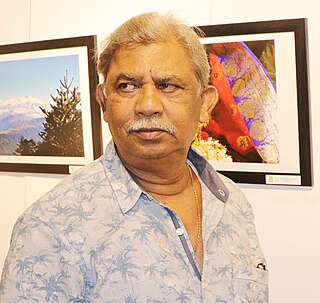The Gupta Empire was an ancient Indian empire which existed from the early 4th century CE to early 6th century CE. At its zenith, from approximately 319 to 467 CE, it covered much of the Indian subcontinent. This period has been considered as the Golden Age of India by some historians, although this characterisation has been disputed by other historians. The ruling dynasty of the empire was founded by Gupta, and the most notable rulers of the dynasty were Chandragupta I, Samudragupta, Chandragupta II and Skandagupta. The 5th-century CE Sanskrit poet Kalidasa credits the Guptas with having conquered about twenty-one kingdoms, both in and outside India, including the kingdoms of Parasikas, the Hunas, the Kambojas, tribes located in the west and east Oxus valleys, the Kinnaras, Kiratas, and others.

Chandragupta I was a king of the Gupta Empire, who ruled in northern and central India. His title Maharajadhiraja suggests that he was the first emperor of the dynasty. It is not certain how he turned his small ancestral kingdom into an empire, although a widely accepted theory among modern historians is that his marriage to the Licchavi princess Kumaradevi helped him extend his political power. Their son Samudragupta further expanded the Gupta empire.

The Gupta script was used for writing Sanskrit and is associated with the Gupta Empire of the Indian subcontinent, which was a period of material prosperity and great religious and scientific developments. The Gupta script was descended from Brāhmī and gave rise to the Śāradā and Siddhaṃ scripts. These scripts in turn gave rise to many of the most important Indic scripts, including Devanāgarī, the Gurmukhī script for Punjabi, the Bengali-Assamese script and the Tibetan script.

Vishnu Prabhakar was a Hindi writer. He had several short stories, novels, plays and travelogues to his credit. Prabhakar's works have elements of patriotism, nationalism and messages of social upliftment. He was the First Sahitya Academy Award winner from Haryana.

Madan Puri was an Indian actor of Hindi and Punjabi films. His brothers were actors Chaman Puri and Amrish Puri. As a character actor mainly in negative roles (villain), he acted in about 430 films in a career spanning above fifty years.

The Indian Academy of Sciences, Bangalore was founded by Indian Physicist and Nobel Laureate C. V. Raman, and was registered as a society on 27 April 1934. Inaugurated on 31 July 1934, it began with 65 founding fellows. The first general meeting of Fellows, held on the same day, elected Raman as president, and adopted the constitution of the Academy.

Yogendra Shukla was an Indian nationalist and freedom fighter, notable for his contributions in the state of Bihar. He was incarcerated in the Cellular Jail, also known as Kala Pani, and was a founding member of the Hindustan Socialist Republican Association (HSRA). Shula, in collaboration with Basawon Singh (Sinha), was also instrumental in establishing the Congress Socialist Party in Bihar.

Shashikala Saigal, better known by her first name, was an Indian film and television actress, who played supporting roles in hundreds of Bollywood films beginning in the 1940s.
NBC Daytime was the daytime programming block of NBC. It historically featured many soap operas, game shows, and talk shows. Its main competitors were CBS Daytime and ABC Daytime.

Toramana also called Toramana Shahi Jauvla was a king of the Alchon Huns who ruled in northern India in the late 5th and the early 6th century CE. Toramana consolidated the Alchon power in Punjab, and conquered northern and central India including Eran in Madhya Pradesh. Toramana used the title "Great King of Kings", equivalent to "Emperor", in his inscriptions, such as the Eran boar inscription.

Raja Sen is an Indian film and television director and the winner of three National Film Awards from Kolkata, West Bengal, India. He is the father of Rajorshi Sen.
Agroha is a Hindu temple complex in Agroha of Hisar District, Haryana, India. Construction started in 1976 and was completed in 1984. The temple is dedicated to the Hindu goddess Mahalakshmi.
Ek Hindustani is an Indian action film which remains unreleased. The film was directed by Tinnu Anand. It starred Sunil Shetty and Raveena Tandon in lead roles.

Shab is a 2017 Indian romantic drama film directed by Onir and produced by Sanjay Suri and Onir for Anticlock Films, WSG Pictures and Surya Entertainment. It stars Raveena Tandon, Arpita Chatterjee, Ashish Bisht, Simon Frenay, Gaurav Nanda and Areesz Ganddi.
Eucreadium is a genus of trematodes in the family Opecoelidae.
Halipegus is a genus of trematode in the family Derogenidae.









